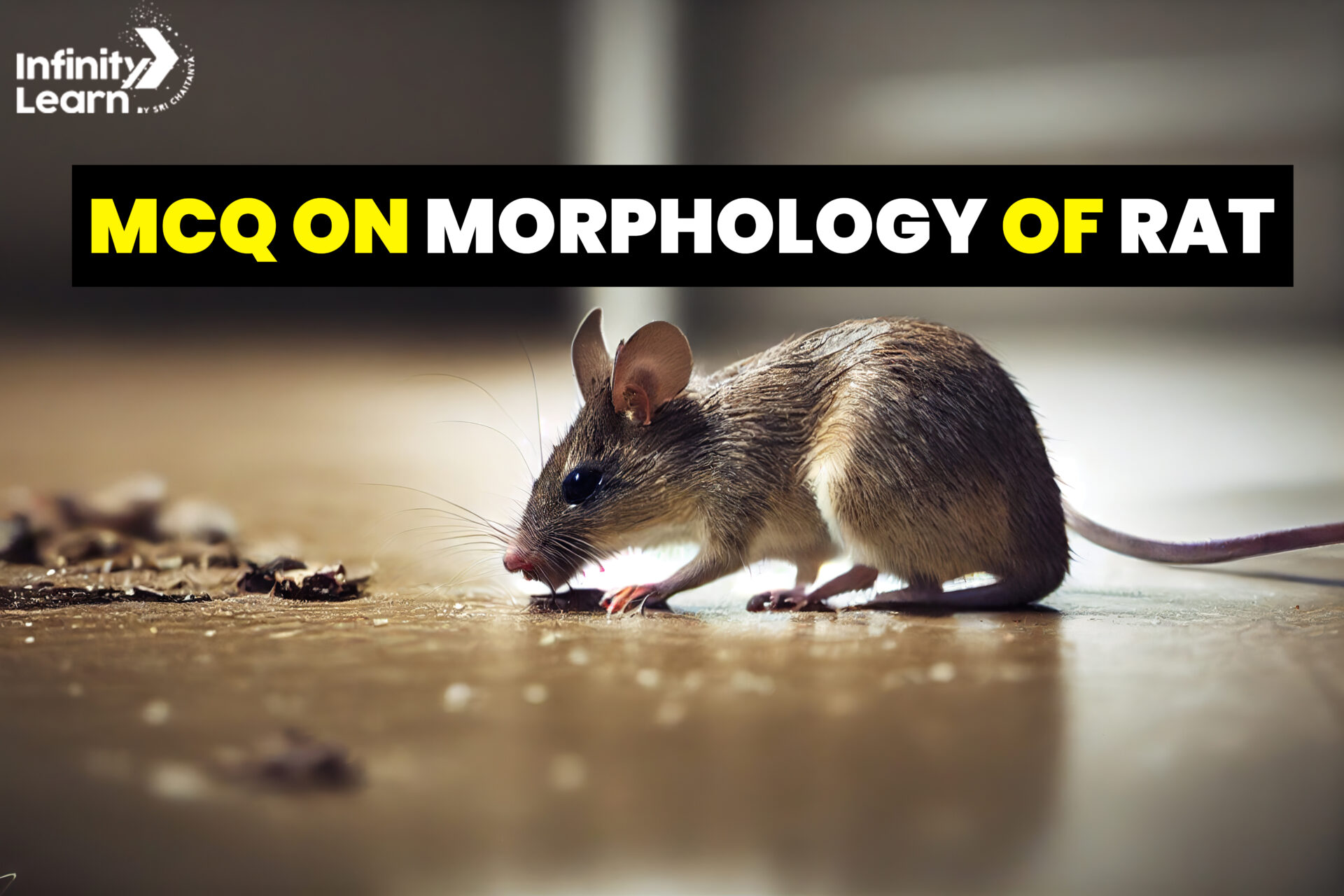The term “rat” is often used casually to describe various rodents with bodies longer than 12 cm (5 inches). Smaller rodents with thin tails are often called “mice.” In scientific terms, “rat” refers to about 56 medium-sized rodents in the Rattus genus, found in Asia and nearby islands, including Australia and New Guinea. Some of these rats have spread widely, thanks to their association with humans.
The brown rat (also known as the Norway rat) and the house rat (also known as the black rat, ship rat, or roof rat) can be found almost everywhere humans live. House rats are more common in warm climates, while brown rats are dominant in cooler areas, especially cities. It’s believed that brown rats originally came from Asia and reached Europe in the 1500s and North America in the 1750s. The house rat likely originated in India.
Morphology of Rat MCQ for NEET
Ques 1. Scales in rats are present on______.
1. Tail
2. Hindlimbs
3. Forelimbs
4. Head
Answer: Tail
Ques 2. Diastema is found in
1. Man
2. Rat
3. Both
4. None of the above
Answer: Rat
Ques 3. Which of the following is the scientific name for the brown rat?
1. Rattus rattus
2. Bandicota bengalensis
3. Rattus norvegicus
4. Rattus meltada
Answer: Rattus norvegicus

Ques 4. Which of the following organ is present in a rat and not in a frog?
1. Ileum
2. Stomach
3. Duodenum
4. Jejunum
Answer: Stomach
Ques 5. Which of the following are the parts of the limb of a rat from the centre to the distal end?
1. Zeugopodium, autopodium and stylopodium
2. Autopodium, zeugopodium and stylopodium
3. Stylopodium, zeugopodium and autopodium
4. Stylopodium, autopodium and zeugopodium
Answer: Stylopodium, zeugopodium and autopodium
Ques 6. Which of the following is a close-set hair covering a rat’s body?
1. Pili tactiles
2. Muzzle
3. Vibrissae
4. Pelage
Answer: Pelage
Ques 7. These teeth are not found in rats_______.
1. Incisors and molars
2. Canines and molars
3. Incisors and premolars
4. Canines and premolars
Answer: Canines and premolars
Ques 8. Which of the following is the largest gland in the body of a mammal?
1. Thyroid
2. Pancreas
3. Liver
4. Pituitary
Answer: Liver
Ques 9. Which of the following is the important mammalian character of a rat?
1. Hair
2. Mammary glands
3. Diaphragm
4. Pinna
Answer: Mammary glands
Ques 10. Which of the following statement is true about the function of Vibrissae?
1. Gustatory
2. Auditory
3. Tactile
4. Olfactory
Answer: Tactile




